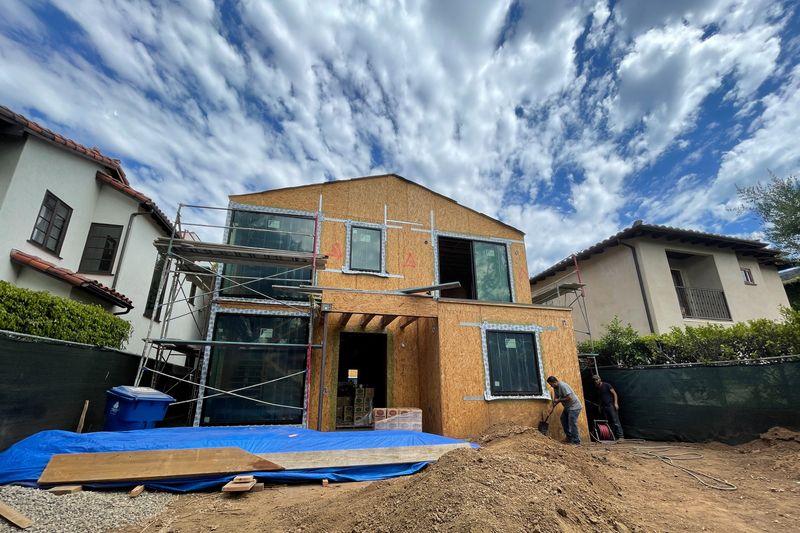According to real estate analysts surveyed by Reuters, this year’s expected moderate decrease in U.S. home prices will be less than initially anticipated because demand has only slightly dipped despite predictions that interest rates will continue to increase.
While the Federal Reserve is anticipated to deliver at least two more rate hikes after raising its benchmark interest rate by 450 basis points from near-zero in just a year, home values that are typically interest rate-sensitive have only dropped roughly 6% from their recent peak.
The fall has barely affected the market, which comes after an increase of more than 45% in average U.S. home prices since 2020 as purchasers hurried to get a deal while those who couldn’t afford it have been forced to pay higher rent.
Since October, mortgage rates have generally been dropping, but they have recently started to rise again due to anticipation that the Fed will maintain the federal funds rate higher for longer. Yet, the most recent housing data shows that activity has increased.
According to a survey of 29 analysts conducted between February 15 and March 2, average home prices measured by the Case/Shiller index, which increased by almost 6% last year, were predicted to fall by 4.5% in 2023 before rising by nothing in 2024. That represents a small decrease from the 5.6% fall forecasted three months prior.
They are anticipated to decline by 10% from peak to trough, which is significantly less than the 12% predicted in a poll released in December and less than one-third of the decline experienced during the 2007–2008 global financial crisis (GFC).
“The market is poised for buyers to return. But unstable mortgage rates, which had decreased in January, stimulating sales activity, will continue to present affordability issues, reducing demand, “said Crystal Sunbury, a senior real estate analyst at the consulting company RSM in the United States.
Although U.S. home prices still had room to decrease, Sunbury predicted that a general housing scarcity would widely support these historically high levels.
In fact, the outlook for the U.S. housing market was a little bit better than those for comparable home markets in Canada and Australia, which are expected to experience worse declines this year.
Although 16 out of 25 analysts, or over 60%, predicted that purchasing affordability would increase in the upcoming year, they disagreed on how home ownership would change in the subsequent two to three years. 13 predicted a decline, while 12 predicted a gain.
“There are more and more indications that home ownership is being negatively impacted by stretched affordability, especially for those (under) 35. This is expected to continue in the upcoming quarters “said Capital Economics’ Sam Hall, a property expert.
“We don’t think affordability will return to its post-GFC levels or even its pre-pandemic average in the coming years.”
The poll found that the 30-year fixed mortgage rate, currently at 6.5%, will average 6.35% this year.
Rents are increasing simultaneously as home ownership appears to be a faraway dream for many people, particularly those who have never experienced such high rates.
According to the report, rental price inflation, which is one of the key causes of overall inflation’s stagnation, will average 2.1% this year and outpace core inflation in 2024 and 2025.
Reading More:




 By:
By:





